Sh21b EU refugee project concluded in West Nile
“The European Union grant was timely. We were able to respond to the basic needs of refugees including water, shelter and protection at the peak of the influx in April 2017,” says Theophillus Emanu, Oxfam Field Response Manager.
Groups of women, youths, farmers have been trained by Oxfam in the making of-Briquettes to provide both refugees and hosts with alternative fuel but also a source of income generation. Courtsey photos
REFUGEES PROJECTS WEST NILE
A 21b project to provide water, sanitation and hygiene services to refugees and host communities in Yumbe, Arua, Moyo and Adjumani districts has successfully been completed.
According to a press release from Oxfam, the project which was launched at the beginning of last year was funded with European Union Humanitarian Aid and supported over 200,000 South Sudanese refugees and their host communities in West Nile region.
Oxfam was the lead organization in a consortium that included CARE International, Save The Children and CEFORD, a local organization.
The most vulnerable refugees also benefited from new semi-permanent homes and services to keep them safe from violence and disease.
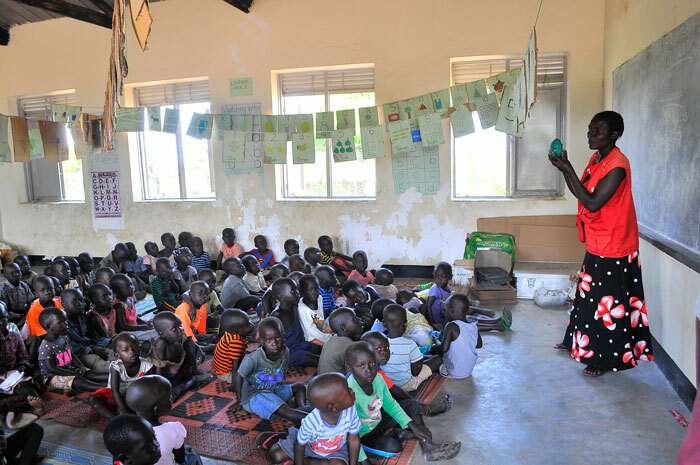
Children both refugees and hosts learn together in the Save the Children ECCD centres set up under the project
Three solar powered water systems were put up and 10 hand pumps drilled to improve access to clean water. The safe water supply greatly helped to improve hygiene and sanitation practices and, by extension, reduce the cases of water borne diseases like diarrhea and malaria.
"The European Union grant was timely. We were able to respond to the basic needs of refugees including water, shelter and protection at the peak of the influx in April 2017," says Theophillus Emanu, Oxfam Field Response Manager.
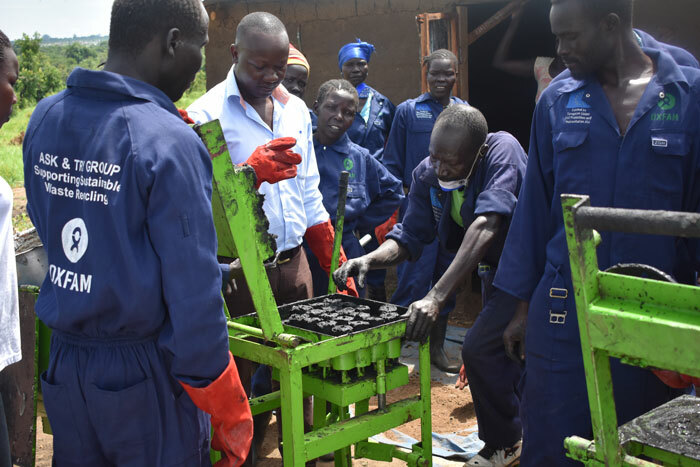
Machine producing briquettes
"We started with water trucking and constructing temporary shelters. As the number of refugees coming in per day reduced, we embarked on more permanent and sustainable interventions like putting up motorised piped water systems, household latrines, as well as centres to handle gender and protection cases. We appreciate how much difference this project has created although gaps still exist as refugees strive to build resilience in their new home,'' he adds.
As the number of school going children increased, 36 Early Childhood Care and Development (ECCD) centres were set up by Save the Children to ensure that children are protected and get a chance to learn and play.
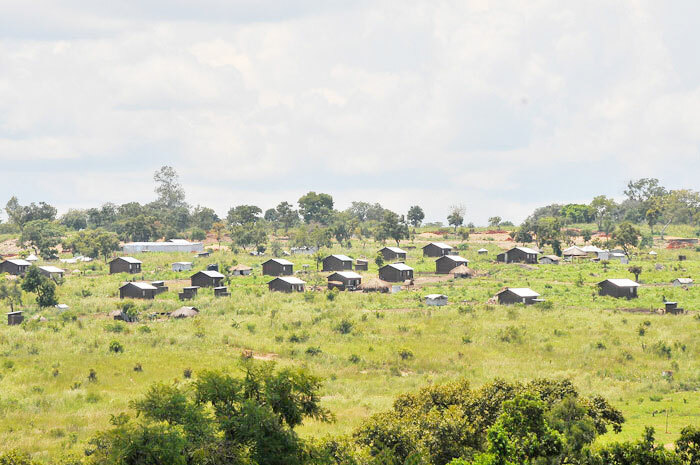
Shelters set up for persons with special needs
"The ECCD centres have provided safe spaces where children can exercise their right to play, associate and enjoy their childhood," says Cephas Hamba, Save the Children Project Manager. "7,835 children have been attended to by our caregivers to address their traumas, isolation and nightmares resulting from the tragedies they experienced back in South Sudan," adds Hamba.
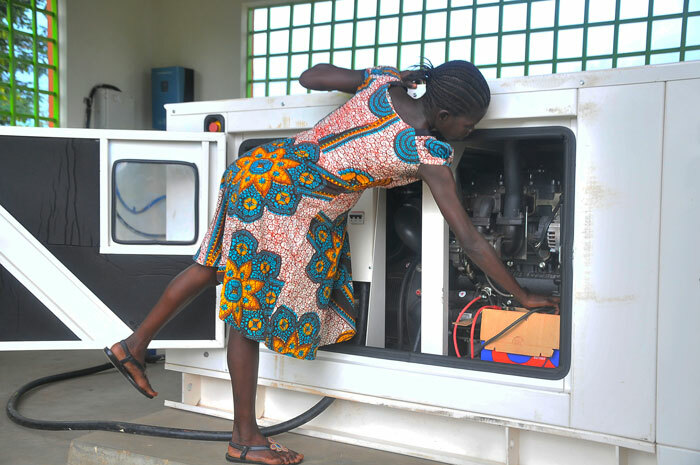
Motorised piped water system in Imvepi set up by Oxfam to serve the refugee host community
Over 14,000 vulnerable people were reached with special care for sexual and gender-based violence, illness or for being elderly or physically disabled.
"The link between access to improved water, sanitation and hygiene services and prevention of gender based violence has proven evident through this intervention. Our integrated approach has given many women and girls their dignity back," says Delphine Pinault, CARE Uganda Country Director.
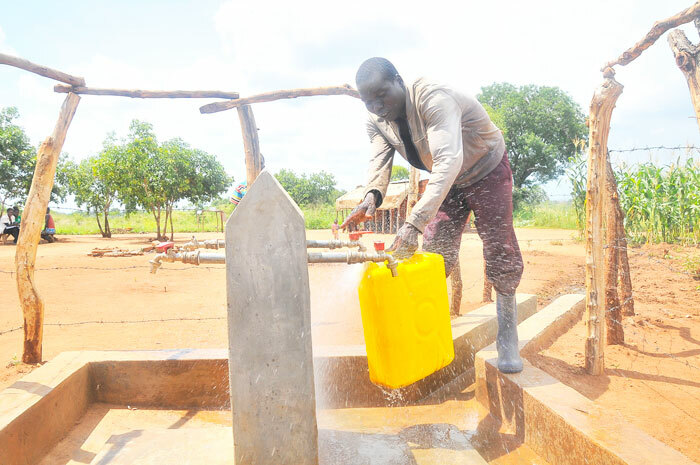
Motorised piped water system in Imvepi set up by Oxfam to serve the refugee host community
While so many lives have been transformed by this project, a lot still remains to be done. Funding for the South Sudan crisis remains low with a glaring gap of 62%. The government of Uganda, in coordination with UNHCR, still needs $541.5million to respond effectively according to the last appeal.
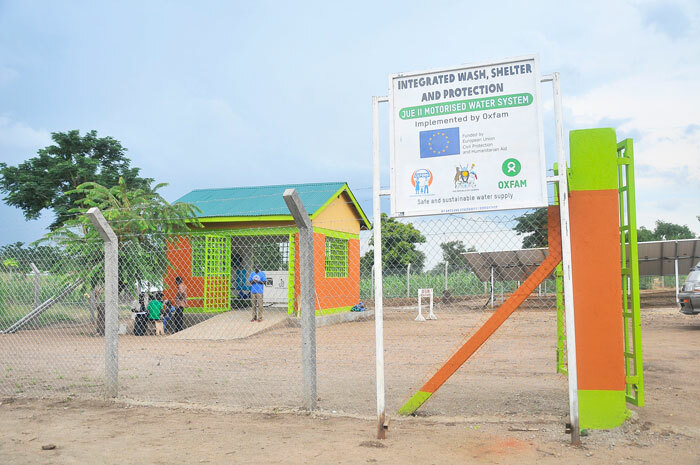
Motorised piped water system in Imvepi set up by Oxfam to serve the refugee host community
The consortium appreciates the EU's humanitarian support for the project which has not only transformed the lives of refugees and host communities but has also created a partnership among agencies committed to building sustainability of host communities and refugees.
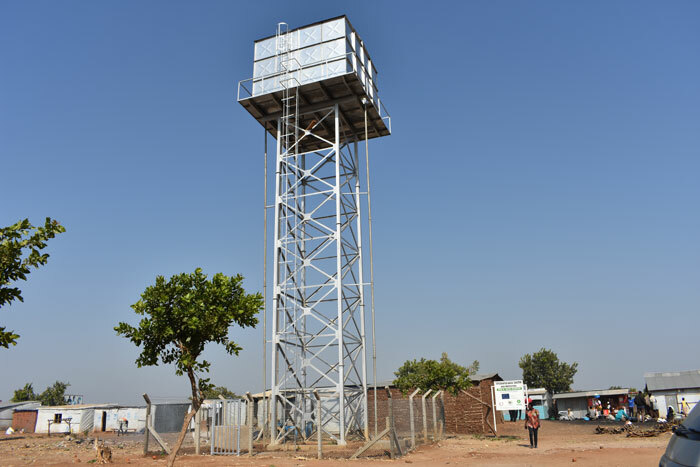
Motorised water system in Rhino Camp settlement